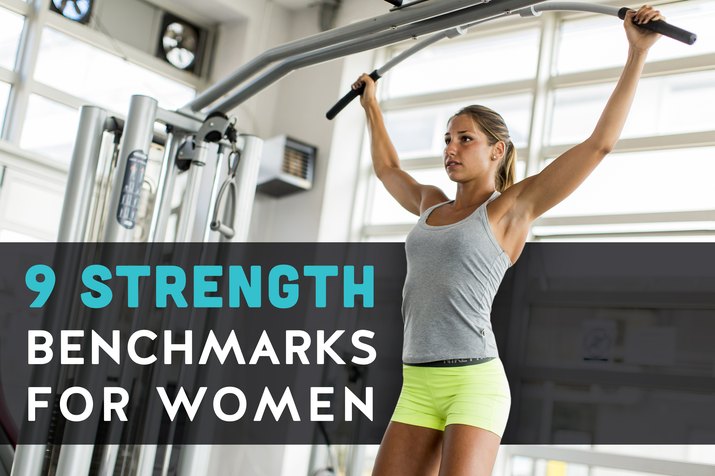
Overview
Many women believe they can't get strong, they shouldn't train hard "like the guys," and they should opt for the pretty, pink, three-pound weights to avoid bulking up. As a result, instead of setting quantifiable and objective goals centered around performance, many women say, "I want to get rid of cellulite on my legs," or "I want to get rid of this," while pinching fat on the back of their arms. While having broad goals like these are fine, focusing on quantifiable and performance-oriented goals on various exercises is the fastest way to meet general aesthetic goals. With this in mind, read on for some recommended strength benchmarks for women.
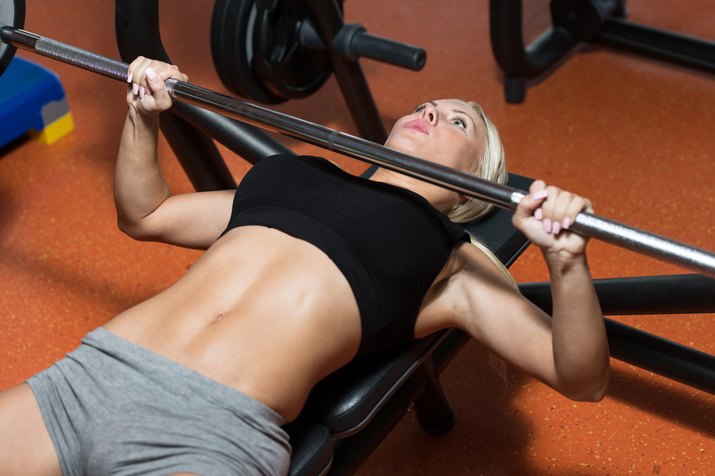
1. Bench Press 75 Percent of Your Body Weight
A good goal is to bench press 75 percent of your body weight for one repetition, or 85 percent of that number for five repetitions. Matt Kasee, owner of Matt Kasee Training & Performance in Cincinnati, advises women to embrace multiple sets of higher weight and lower reps. HOW TO DO IT: Lie on your back, grasp a barbell at shoulder width or slightly wider, lower the bar to the middle of the chest and drive the bar back up to full extension. Make sure you pull your shoulder blades together to ensure a good base of support and protect your shoulders. The elbows should tuck in slightly towards your torso at about a 45-degree angle.
Related: Bench Press Vs. Flies
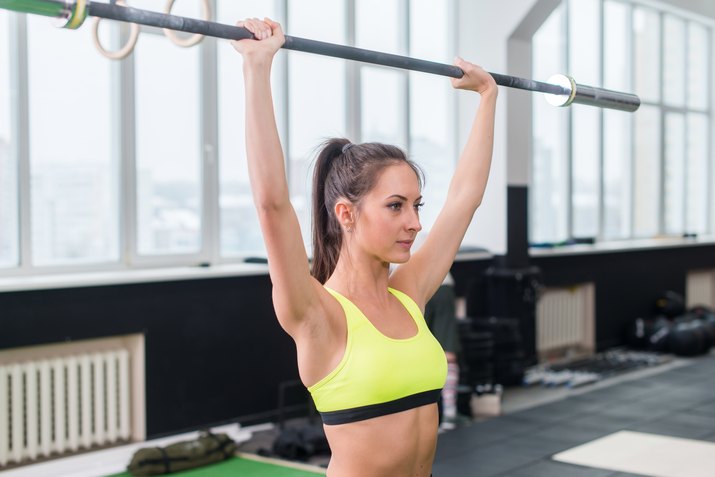
2. Do a Standing Barbell Press at 60 Percent of Your Body Weight
The standing barbell press is a strong indicator of your maximal strength while pressing in a vertical plane and focuses on the front shoulders, triceps and core muscles. Holly Mitchell, an International Federation of Bodybuilding and Fitness (IFBB) figure pro and co-owner of Live Fit Cincinnati, advises working up to a weekly three- to five-repetition maximum on the standing barbell press and then backing the weight down significantly and performing four to five sets of eight to 12 reps. HOW TO DO IT: Grasp a bar about shoulder width, starting with the bar on the upper chest. Tense your whole body and, without using your lower back, drive the bar over your head and slightly back.
Related: Dumbbell Press Vs. Bench Press
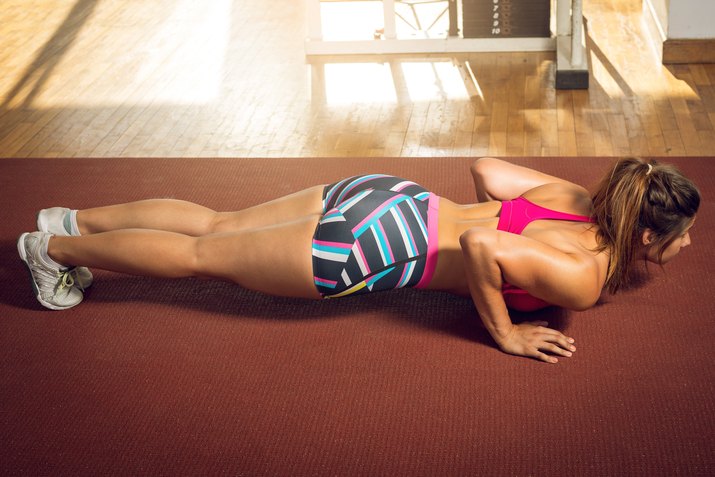
3. Perform 10 Standard Push-Ups
The good old-fashioned push-up is a fantastic indicator of your upper-body strength endurance -- specifically in your chest, front shoulders, triceps and core muscles -- as well as your relative strength. If you're currently unable to perform any full-range push-ups, Matt Kasee of Matt Kasee Training & Performance advises using a barbell set three to four feet above the ground in a power rack to reduce the percentage of your body weight you must use. HOW TO DO IT: Assume a standard push-up position with your hands outside your chest. Lower yourself down to the floor, keeping the elbows tucked to about 45 degrees, the core tight and the neck in a neutral position. Drive back through the floor without letting your back sag.
Related: Already Mastered the Push-Up? Try these Push-Up Rotations.
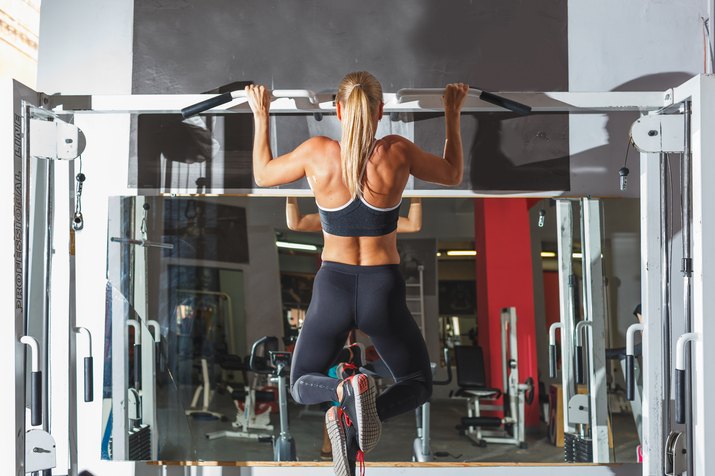
4. Complete One Body-Weight Chin-Up
Like the push-up, the chin-up is another great indicator of your upper-body strength endurance and your strength relative to body weight. However, they test the opposite muscles: the upper back, lats, biceps and gripping muscles used in pulling. "Start by using a chin-up assistance machine," says John Meadows, trainer and creator of the Mountain Dog Diet. "After making progress in the assistance machine, move on to banded chin-ups and pull-ups." HOW TO DO IT: Start from a dead hang from an overhead bar. Aggressively drive your elbows down -- focusing on pulling your shoulder blades down -- and pull yourself up over the bar until it hits your upper chest. Return to the fully extended position under control and repeat.
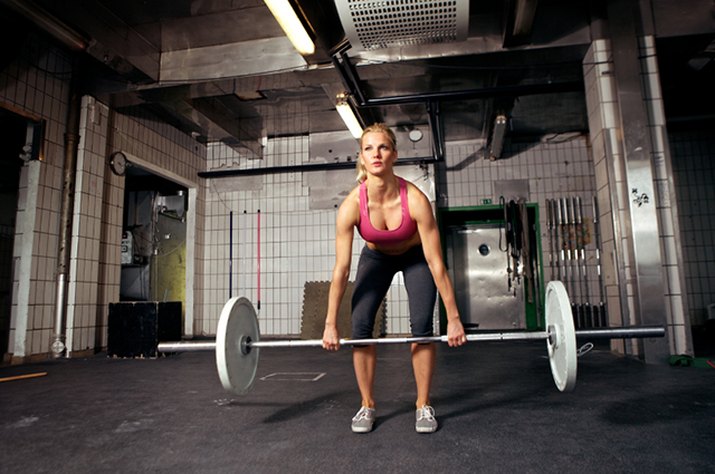
5. Deadlift 150 Percent of Your Body Weight
Perhaps no other exercise indicates your full-body strength better than the deadlift. Shoot for pulling 150 percent of your body weight for a single rep, or 85 percent of that number for five reps. "Lift with intent and purpose," says Jon-Erik Kawamoto, owner of JKConditioning. "Going through the motions is not going to make you tough when the weight gets heavy." HOW TO DO IT: Align a loaded barbell with the middle of your feet (feet inside shoulder width). Bend over and grasp the bar. Pull your hips down, flex your lats, brace your core and grip the bar hard. Stand up, pause, and then lower the weight back to the ground.
Related: Sign Up for the FREE Weekly LIVESTRONG.COM Newsletter
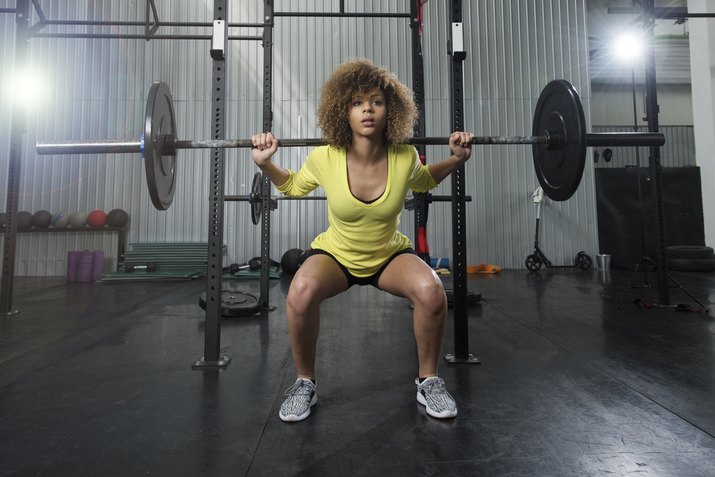
6. Barbell Squat 125 Percent of Your Body Weight
The barbell squat has long been heralded by gym rats as the "king of all exercises." "Breathe through your belly and take in air while trying to create 360 degrees of stability through your abs and low back," says Jason Placeway, a chiropractor and certified strength and conditioning specialist in Cincinnati. "Before you descend in the squat, breathe in while expanding your belly and low-back muscles." HOW TO DO IT: Place a barbell across your upper back, keeping the shoulder blades pulled together to create a strong base. Push the hips back and descend to a point just below parallel. Make sure to keep the weight on your heels and your spine in a neutral alignment. Stand up aggressively to full extension.
Related: How to Do a Proper Squat
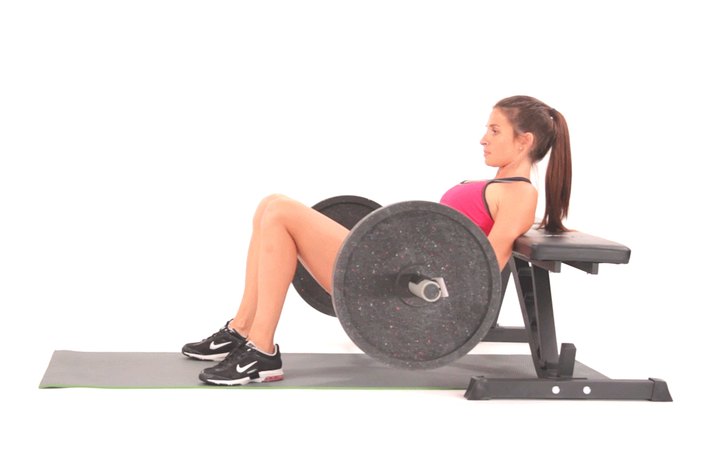
7. Complete 10 Barbell Hip Thrusts at 1.5 Times Your Body Weight
The hip thrust, which will put a little more "junk in their trunk," is a fantastic indicator of your strength in the glutes, hamstrings and lower back. "To achieve this goal, pyramid your sets, performing a set of 10, a set of eight, a set of six, and then a set of 15 repetitions," says Bret Contreras, Arizona-based strength coach and "glute guy." HOW TO DO IT: Roll a loaded barbell over your legs so it's sitting across the front of your hips. With the knees bent and your back elevated on a standard bench, hold the bar just outside the hips and then thrust up until you are parallel to the floor, making sure to squeeze the glutes and not hyperextend the low back.
Related: 5 Yoga Poses for a Firmer Butt
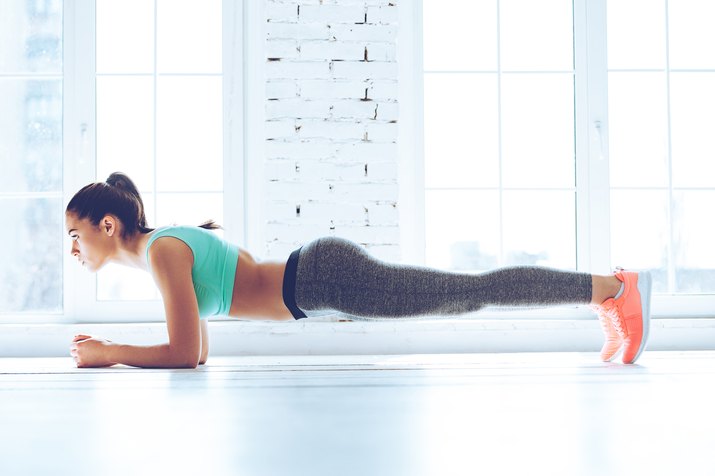
8. Hold a Plank for Two Minutes
Having a strong core and set of abdominals is not only aesthetically pleasing, but also essential for lifting heavy weights, performing better and staying injury free. "You should definitely perform the standard plank once a week for maximum time," says strength and conditioning specialist Jason Placeway. "But performing more-demanding versions, like ball saws and stir-the-pot planks on a stability ball, for shorter periods will develop strength faster and allow you to perform better during the regressed exercise." HOW TO DO IT: Set up in a push-up position, but instead of having your weight on your hands, place it on your elbows. You should be in a perfectly straight line. Don't allow the back to sag.
Related: How to Do a Plank
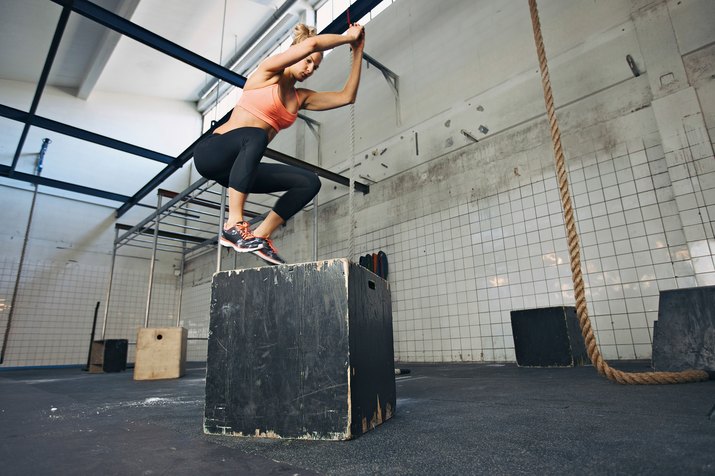
9. Clear a 20-Inch Box Jump
While strength (the ability to produce force) is very important, women should also focus on developing and maintaining power (how quickly and explosively strength is expressed). If you're new to jumps, start with a 12-inch-high surface, get your technique down, and then go from there. Try three sets of three to five jumps prior to your lower-body workouts, and try to progress the surface height every other workout. HOW TO DO IT: Stand in front of a box, step or bench. Raise your arms up over your head before squatting down and lowering your arms behind you. Explode upward as you propel your arms back over your head. Land softly on the box with soft knees. Step, don't jump, back off the surface and reset fully.
Related: 16 Essential CrossFit Moves
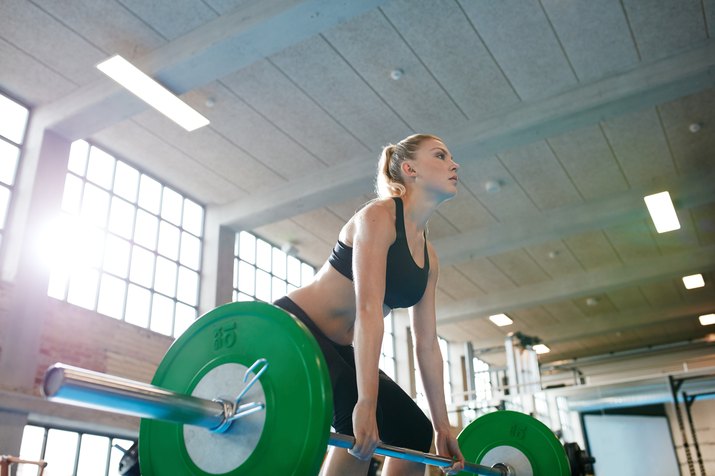
How Do YOU Measure Up?
Do you lift weights? Have you tried any of these exercises? What do you think about these strength benchmarks? Too tough? Too easy? Which ones can you do already? Which ones are you still working toward? What are your fitness goals and how are you planning to achieve them? Leave a comment below and let us know.
Video of the Day
Video of the Day